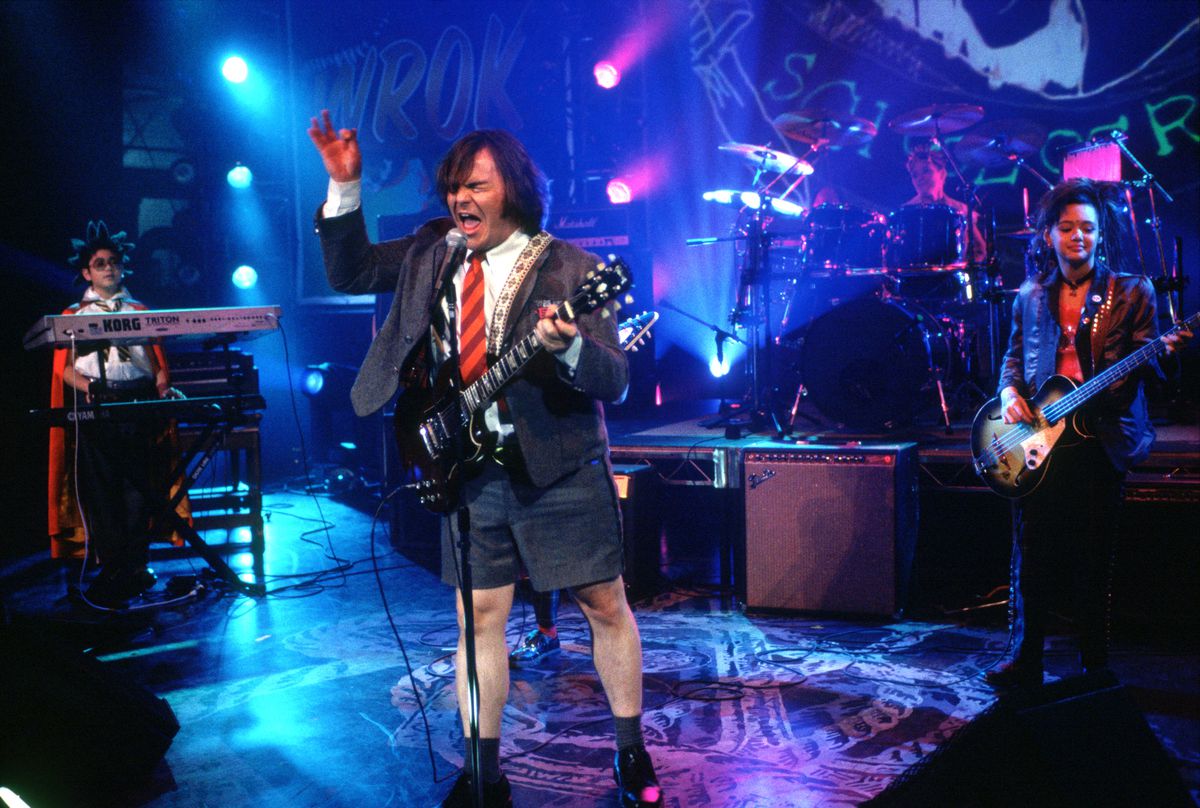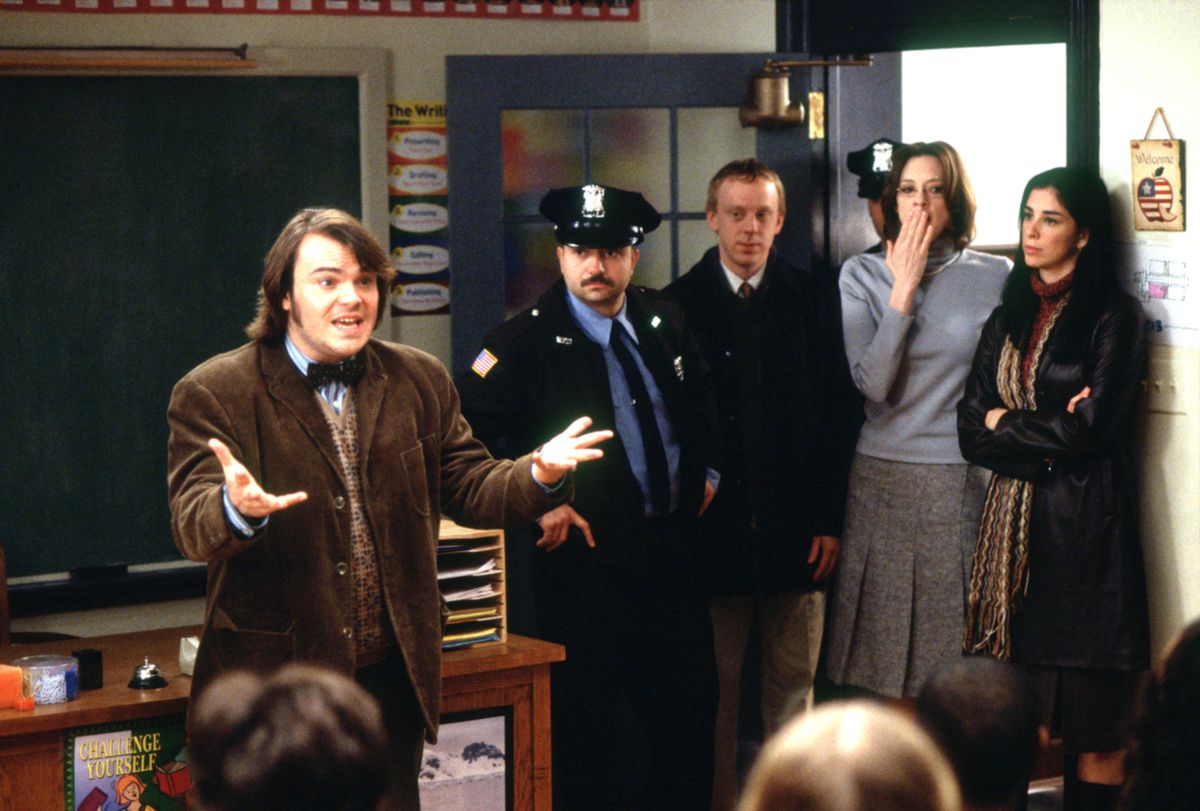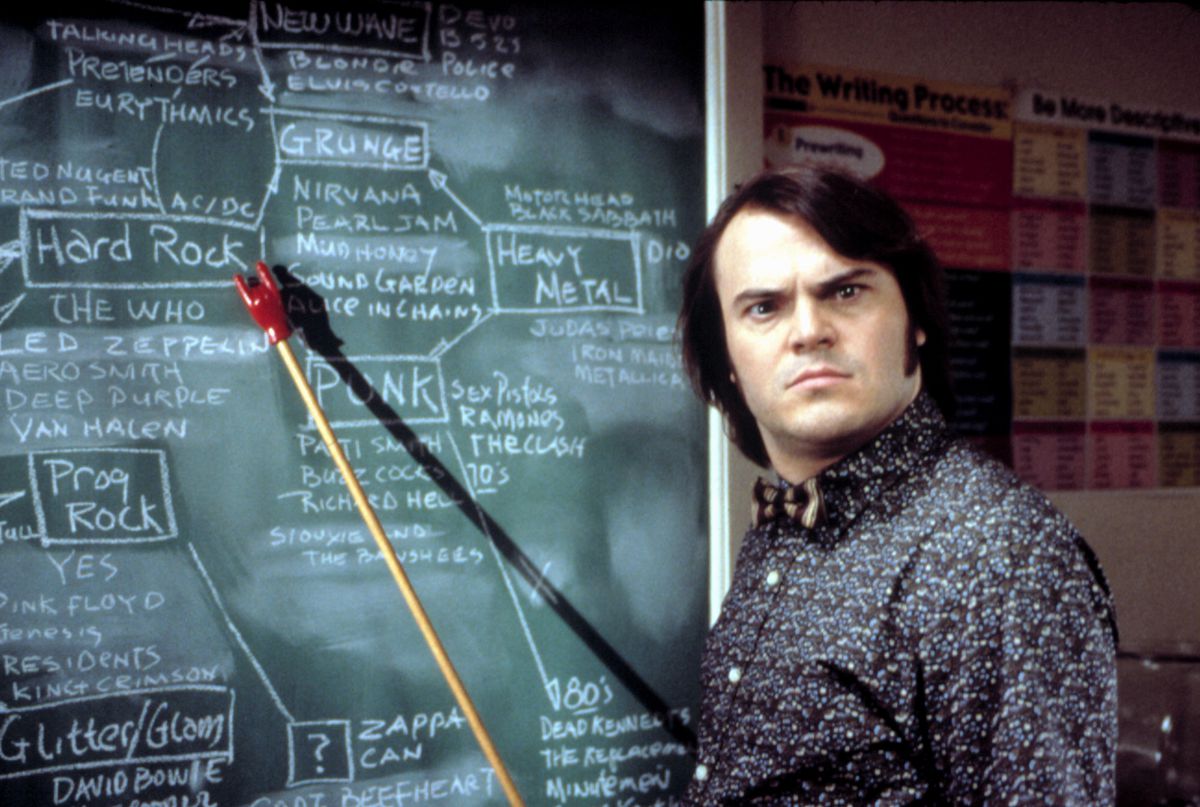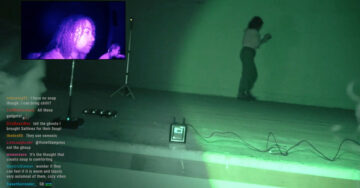Indie filmmakers are responsible for some of the greatest movies in cinematic history, but no independent auteur can whip up accessible, dynamic, generation-defining movies like Richard Linklater. His first film, Slacker, was just a peek into the possibilities of his creative and experimental dexterity, but it was enough to inspire fellow mumblecore maestro Kevin Smith to begin his directing career. Linklater made history with his 12-year film project Boyhood, and he’s set to do it again with Merrily We Roll Along — an adaptation of Stephen Sondheim’s musical that he intends to film over the course of the next 20 years. But while his ambition has always been fruitful and fascinating, his purest, most impactful work shows up in his more conventional subjects and stories — particularly School of Rock, arguably the most career-defining movie he’s ever made.
Linklater is perhaps best known for crafting the greatest ’70s-movie-not-made-in-the-’70s with Dazed and Confused, a rebellious, somewhat nihilistic coming-of-age classic with an iconic soundtrack and a star-making cast. This movie about nothing was such a success that Linklater kept working in that mode, with the charming, sexy Before Sunrise and the slice-of-life story SubUrbia, though his 2006 rotoscoped sci-fi movie A Scanner Darkly is arguably more about everything. His emphasis on characters and setting makes him an expert world-builder, resulting in an authentic, lived-in quality to his films. Down-to-earth character studies and experimental, mixed-medium movie magic gives him a unique brand of underdog empowerment that’s earned him a cultlike admiration.

But School of Rock, now hitting its 20th anniversary, almost always gets left out of the big Linklater conversations, and it deserves a higher standing than it has. The 2003 film is the brainchild of legendary writer-director Mike White (creator of White Lotus), who hatched the idea after moving next door to Jack Black. White knew Black’s powerful charisma could translate into a more meaningful role than the screwy goofballs he typically played, and looking at Black’s musical career with Tenacious D, White envisioned a playfully punk story about a substitute teacher that was a perfect fit for Linklater’s slacker sensibilities.
The film follows Black’s character, Dewey, a guitarist and singer who lives with a former fellow rocker who’s become a substitute teacher, Ned Schneebly (a heterosexual version of Mike White), and Ned’s hilariously domineering girlfriend, Patty (Sarah Silverman). After Dewey gets kicked out of his band for his extended guitar solos and distracting stage presence, he seizes on one of Ned’s job opportunities, planning to masquerade as a substitute teacher until he can get back on his feet. But then he realizes he’s stumbled upon a class full of music prodigies who might just be his ticket back into the Battle of the Bands.
Linklater is associated far more with Matthew McConaughey’s line “All right, all right, all right” in Dazed and Confused than for Fancy Pants’ “You’re tacky and I hate you” in School of Rock, but 20 years after this film’s release, it feels necessary to acknowledge that the Jack Black film is the true summary of Linklater’s career. The most praised and beloved qualities of Linklater’s films — their romanticism, their quotability, and particularly the sense of freedom they carry — are especially present in School of Rock, on a wider-spanning, more blockbuster-friendly scale than in most of his movies. It starts with simple slacker hijinks, but evolves into loser liberation.

The kids and adults watching may find something inspiring, even life-affirming, in this movie. Jack Black’s Mr. Schneebly is the teacher we all wanted — an authority figure who questions authority, listens to their students and validates their dreams, and understands the appeal of cynicism, but still knows the antidote is self-expression and acceptance.
Once Mr. Schneebly’s class is in session, he breaks down the barriers of the schoolyard hierarchy and creates a musical utopia full of quintessential rock anthems old and new. He encourages nerdy pianist Lawrence (Robert Tsai) to believe in his inherent coolness; he teaches bigger girl Tomika (Maryam Hassan) that she’s worth more than her body; he brings an especially uptight Joan Cusack out of her shell. And through the process of conjuring the punk within these preps, he evolves into a better version of himself. School of Rock is a feel-good frenzy that encapsulates a simpler time in American academia, when students and educators and parents could aspire to more than physical safety.
As with Dazed and Confused, there’s an exciting energy buzzing beneath School of Rock, partly due to its phenomenal soundtrack, but also fueled by the relentless enthusiasm generated by Jack Black and his arsenal of rock ’n’ roll wisdom. The impending sense of adulthood, responsibility, and an unknown future that hangs over Dazed and Confused is nowhere to be found here. Instead, there’s a great deal of optimism and an enduring universality in the way Mr. Schneebly embraces these kids as they are, and affords them the freedom to experiment with who they want to be.

Popular films from past decades can be disappointing to revisit, full of outdated ideas or tired jokes that traffic in broad stereotypes. But School of Rock’s nurturing point of view and warmhearted humor are just as harmonious all these years later.
More reserved cinephiles may feel School of Rock lacks the cool factor of some of Linklater’s other films, but it was clearly made with the same honesty and tenderness that went into any of his other coming-of-age classics. This film did more than launch Miranda Cosgrove’s career and confirm Jack Black as a charismatic film lead. It inspired more than just a short-lived TV spinoff and an Andrew Lloyd Webber-produced Broadway adaptation. School of Rock empowered an entire generation to stick it to The Man and march to the beat of their own drum (or bass, or guitar, or lighting design, or whatever). It’s a timeless, resonant film for slackers and rockers of all ages, and that’s hardcore.
School of Rock is streaming on Paramount Plus and Pluto TV, and is available for rental or purchase on Amazon, Vudu, and other digital platforms.
- SEO Powered Content & PR Distribution. Get Amplified Today.
- PlatoData.Network Vertical Generative Ai. Empower Yourself. Access Here.
- PlatoAiStream. Web3 Intelligence. Knowledge Amplified. Access Here.
- PlatoESG. Carbon, CleanTech, Energy, Environment, Solar, Waste Management. Access Here.
- PlatoHealth. Biotech and Clinical Trials Intelligence. Access Here.
- Source: https://www.polygon.com/23945401/school-of-rock-jack-black-richard-linklater-20th-anniversary
- 20
- 20 years
- 2006
- 20th
- 50
- a
- About
- academia
- acceptance
- accessible
- adaptation
- Administrators
- adults
- after
- again
- ages
- aims
- All
- all ages
- almost
- also
- always
- Amazon
- ambition
- American
- an
- and
- Anniversary
- antidote
- any
- appeal
- ARE
- arguably
- Arsenal
- as
- aspire
- associated
- At
- Authentic
- Authority
- available
- back
- band
- barriers
- bass
- Battle
- BE
- beat
- become
- been
- believe
- beloved
- BEST
- Better
- BIG
- bigger
- Black
- body
- brand
- Breakdown
- breaks
- Bright
- brings
- broad
- broadway
- brown
- but
- Buzzing
- by
- CAN
- Career
- carry
- character
- characters
- charismatic
- cinematic
- class
- Classic
- classics
- classroom
- clearly
- CNBC
- COM
- confirm
- conventional
- conversations
- cool
- could
- course
- crafting
- creates
- Creative
- creator
- deal
- decades
- defines
- deserves
- Design
- DID
- digital
- digital platforms
- directing
- disappointing
- do
- down
- dreams
- drum
- due
- dynamic
- earned
- educators
- embraces
- emphasis
- empowered
- Empowerment
- encapsulates
- encourages
- enduring
- energy
- enough
- Enter
- enthusiasm
- entire
- especially
- even
- EVER
- everything
- evolves
- Exciting
- experiment
- experimental
- expert
- factor
- far
- fascinating
- feel
- Feet
- fellow
- Figure
- Film
- filmmakers
- films
- find
- First
- fit
- follows
- For
- Former
- found
- Freedom
- frenzy
- from
- fruitful
- fueled
- full
- future
- Gaming
- generated
- generation.
- Get
- gives
- great
- greatest
- guitarist
- hardcore
- has
- hate
- he
- her
- here
- higher
- him
- himself
- his
- history
- hitting
- HTML
- HTTPS
- Humor
- i
- iconic
- idea
- ideas
- impactful
- impending
- in
- Independent
- inherent
- inspire
- inspired
- inspiring
- instead
- intends
- into
- Is
- IT
- ITS
- Job
- Job Opportunities
- jpg
- just
- kept
- kids
- known
- knows
- later
- launch
- lawrence
- lead
- left
- Legendary
- liberation
- Lighting
- like
- Line
- listens
- lives
- Look
- looking
- made
- Maestro
- Magic
- MAKES
- man
- March
- masquerade
- matthew
- May
- meaningful
- might
- mike
- mode
- more
- most
- movie
- Movies
- mr
- Music
- musical
- necessary
- New
- Next
- no
- nothing
- now
- nurturing
- of
- Old
- on
- One
- opportunities
- optimism
- or
- Other
- out
- over
- own
- Paramount
- parents
- particularly
- Past
- PBS
- perfect
- perhaps
- physical
- planning
- Platforms
- plato
- plato data intelligence
- platodata
- platogaming
- played
- Plus
- Point
- Point of View
- Polygon
- possibilities
- powerful
- presence
- present
- Process
- project
- purchase
- quality
- questions
- quintessential
- red
- release
- relentless
- reserved
- responsibility
- responsible
- resulting
- Richard
- right
- ROBERT
- Rock
- Roll
- room
- same
- Scale
- School
- Sci-Fi
- sense
- session
- set
- setting
- several
- Shell
- shorts
- shows
- Simple
- simpler
- singer
- some
- something
- somewhat
- Soundtrack
- Sponsored
- Stage
- standing
- stands
- starts
- Stephen
- still
- Stories
- Story
- streaming
- Students
- studies
- Styles
- success
- such
- summary
- sunrise
- super
- teacher
- than
- that
- The
- their
- Them
- then
- These
- they
- this
- though
- Through
- Ticket
- TIE
- time
- timeless
- to
- traffic
- true
- tsai
- tv
- tweed
- typically
- understands
- unique
- unknown
- until
- up
- upon
- validates
- version
- View
- vocal
- want
- wanted
- was
- watching
- way
- we
- went
- whatever
- when
- while
- WHIP
- white
- WHO
- with
- within
- Work
- working
- worth
- years
- zephyrnet












